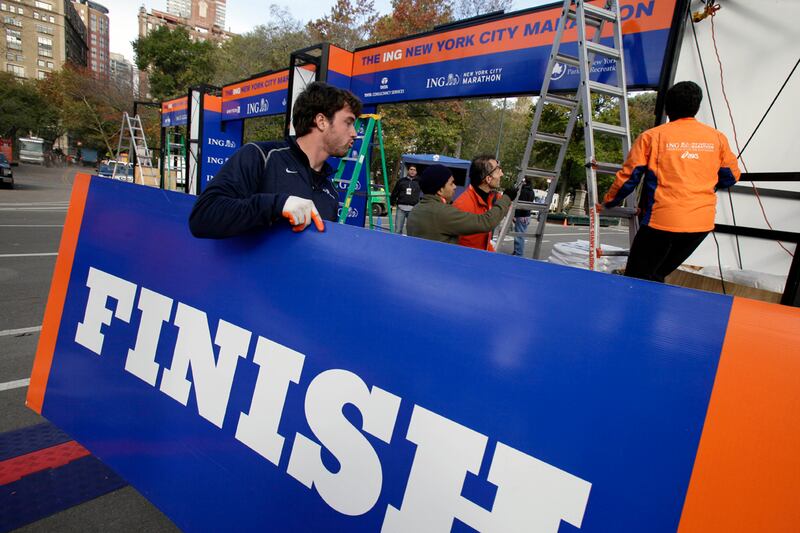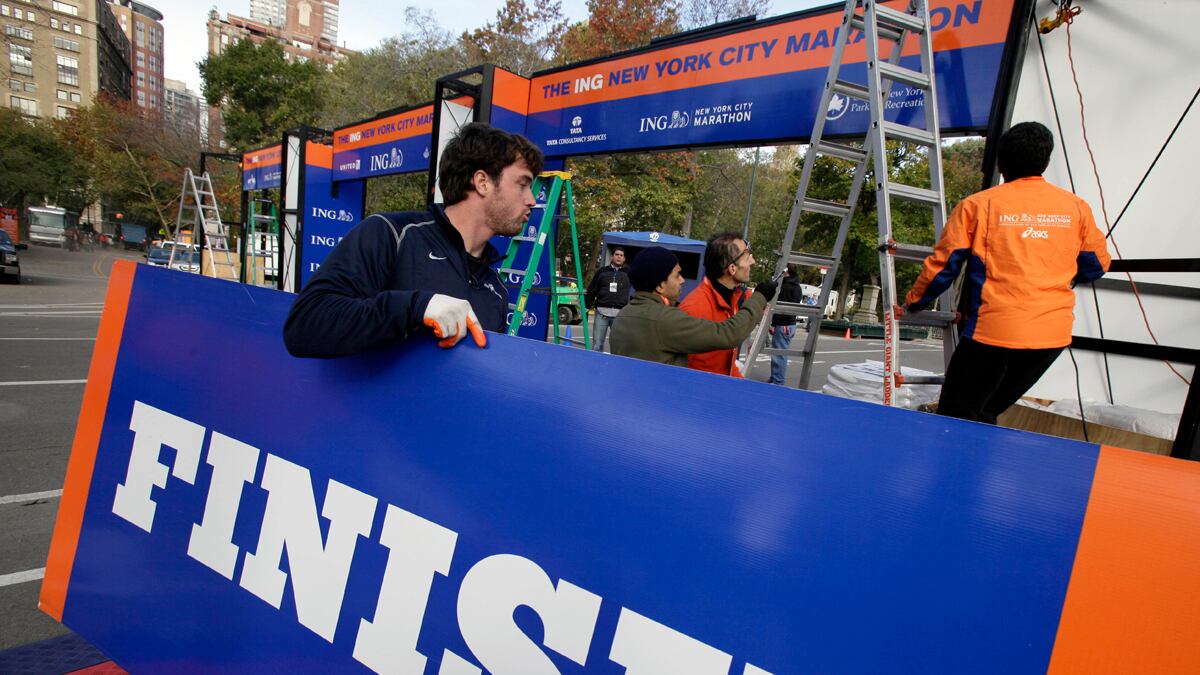It was inevitable that there would be a backlash against the New York Marathon going ahead as planned this weekend. This is New York, after all, and whatever decision was made—go for it, cancel, or postpone—you knew some people would object, and object loudly. Especially if, like the New York Post or a borough president, they can score demagogue points by doing so.
But to see New York cave to the voices of fear, rather than of reason, is unprecedented, shameful, and wrongheaded. It’s an object lesson how well-meaning activists can undermine causes they seek to promote.
First, let’s be clear: superstorm Sandy is the most devastating thing to happen to New York City since Sept. 11. My city is crippled, thousands are without power, and now thousands more are struggling to get food, gas, and basic necessities. We are hearing stories of elderly people trapped in the upper floors of high-rises, and of people whose lives—particularly on Staten Island—have been destroyed. There have also been inspiring stories of personal generosity and governmental can-do.
The question, then, is whether the marathon would have helped, hurt, or been irrelevant to these efforts.
A lot of loud, noisy, uninformed people won the day by shouting “hurt.” Won’t the marathon divert resources better spent on emergency supplies, food, and shelter, they asked. Shouldn’t cops be delivering essential services, rather than guarding a racecourse, they said.
Actually, no. There was never any data showing any diversion of resources. The city had already hired additional police—paid for out of the marathon’s proceeds—and Mayor Bloomberg has insisted that the net effect on relief work would have been zero. The real front lines in the relief effort are Con Edison, the Red Cross, and governmental emergency services—none of them have anything to do with the marathon. In other words, this is not a zero-sum game; it’s just not the case that cops will either be at food distribution centers or guarding the marathon.

And the marathon normally provides a massive economic boost, bringing $340 million in economic activity to the city. Even discounting that for lower attendance this year, it’s a huge net win for New York. Since municipal resources are severely stretched because of Sandy, the last thing the city should do is reduce its revenue streams.
Likewise our own personal resources. Are critics of the marathon spending every waking hour volunteering? Have they given away all of their life savings to this relief effort? Of course not, nor should they. Everyone should give something, but no one should give everything—and giving up this huge civic event, which so many people have worked so hard for, doesn’t help anyone.
In other words, the anti-marathon arguments are based not on facts (at least, not supportable ones) but on sentiment. The wrong sentiment.
Setting aside conservative populists who attacked the marathon to sell papers, liberals blasted it as a violation of fundamental values. The Nation, for example, called the marathon “just another example of how savage New York’s inequalities have become.” Others have complained about the unappealing juxtaposition of a bunch of well-off runners parading through what is effectively a war zone.
In this view, runners are callous, insensitive, and selfish. It’s like we would have been running a victory march over the destroyed communities of the city, gloating in our normal lives and fit bodies while others struggle for basic necessities.
These are telling remarks, and they show how laudable exercises in empathy can end up hurting those they intend to help.
I will admit I am biased here, having spent the last six months training, preparing, and raising $2,000 in charity for the marathon. For me and 40,000 other people, this is a huge deal. But it also is for the city, even beyond its economic impact. Things are not back to normal, and they won’t be on Sunday. But if the marathon had gone on, it would have been a sign that they will be. As clichéd as it sounds, it is a symbol of renewal, hope, and inspiration.
To some, especially to liberals like me, those values are suspect. They’re not just cheesy; they’re patriotic, dubious … and often used to airbrush out important, if difficult, truths.
But they also work. Ideologues of all stripes may get motivated by negative emotions, but what motivates most people toward healing are positive messages: conservative paeans to the “American Dream,” liberal ideals of fairness and equality. That’s how human nature is. Even in New York, we cannot kvetch our way to recovery.
Of course, too little empathy—a la Romney on climate change—is worse than too much. Sometimes the realities are indeed grim, and they call for seriousness.
But grim realities do not a recovery make. From Jimmy Carter’s “malaise days” to the negative, angry tone that eventually took over the Occupy movement, progressives fail when we try reminding people how crappy they have it—just as Tea Partiers have failed to win wider support for their angry, negative movement. Most people know how crappy they have it; what they want from public life are symbols and stories that inspire them with possibility. Not as an opiate, but as a reminder that a better life is possible.
For six months, I have been in training for the marathon. What have I learned? That it is possible to exceed one’s sense of oneself. That hard work and dedication can bring results. That if I can do it, you can too. These values may sound corny, or worse, but they also can give hope to people struggling without power on Staten Island or without gas in Brooklyn. This isn’t about victory, but solidarity.
If this were a choice between a race and a recovery, I’d have chosen the recovery, too. But it isn’t. The mistrust of this event is based not in fact, but in psychology. Let’s not hang our heads and mope; that isn’t going to help anyone. We should’ve stood up and run this race for New York, for ourselves, and for the oft-misquoted utterance of William Faulkner: that humanity will not merely endure, but prevail.






